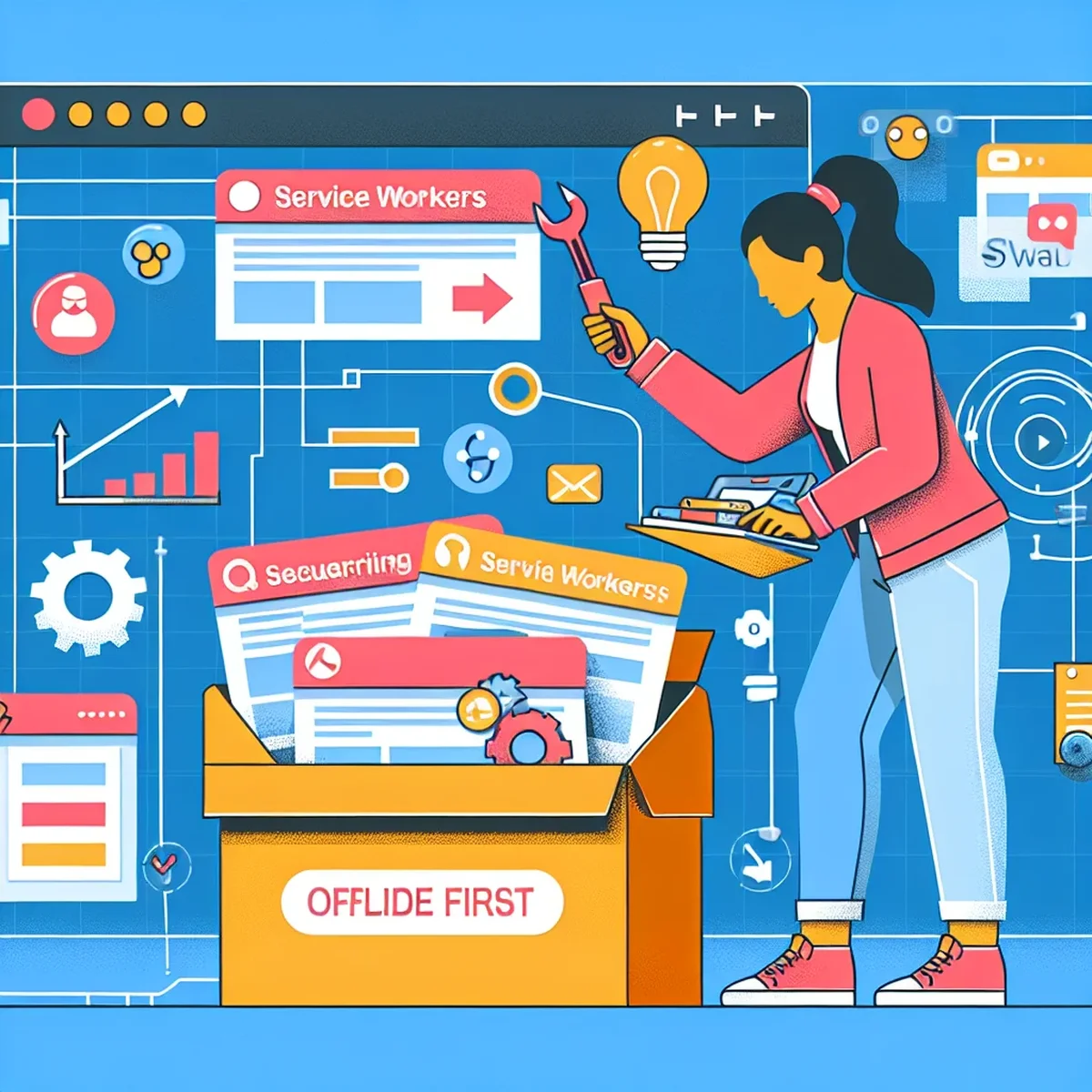Mastering Offline First Strategies with Service Workers

The digital landscape is evolving, and with it, the expectations of users who demand seamless, uninterrupted access to web content and applications. This is where the concept of "Offline First" using service workers plays a crucial role in modern web development.
Understanding Offline First and Service Workers
Offline First is a design philosophy that prioritizes the offline functionality of an application before considering online processes. This approach ensures that applications are usable even without an internet connection, providing a continuous user experience (UX) and boosting performance.
Service workers are scripts that your browser runs in the background, separate from a web page, opening the door to features that don't need a web page or user interaction. They are primarily used to handle network requests, cache resources, and enable rich offline experiences.
Key Benefits of Going Offline First
Implementing an Offline First strategy using service workers provides several advantages:
- Enhanced User Experience: Users can access content and functionalities without connectivity issues, which is especially crucial in areas with unstable internet connections.
- Increased Performance: Caching important resources locally decreases load times and improves app responsiveness.
- Reliability: Reduces dependency on network quality, ensuring that your app delivers a consistent experience.
Implementing Service Workers for Offline Capabilities
To harness the benefits of service workers for your web projects, follow these strategic steps:
1. Register a Service Worker
First, check if the browser supports service workers and then register them with the following JavaScript code:
if ('serviceWorker' in navigator) {
navigator.serviceWorker.register('/service-worker.js').then(function(registration) {
console.log('Service Worker registered with scope:', registration.scope);
}).catch(function(error) {
console.log('Service Worker registration failed:', error);
});
}
2. Install and Activate
During the installation phase, cache the assets your app needs to run offline. Here's a simplified example:
self.addEventListener('install', function(event) {
event.waitUntil(
caches.open('v1').then(function(cache) {
return cache.addAll([
'/index.html',
'/styles.css',
'/script.js'
]);
})
);
});
3. Fetch and Serve Cached Assets
Once your assets are cached, use the fetch event to intercept network requests and serve the cached assets:
self.addEventListener('fetch', function(event) {
event.respondWith(
caches.match(event.request).then(function(response) {
return response || fetch(event.request);
})
);
});
Best Practices for Managing Service Workers
- Keep Your Service Worker Lifecycle in Check: Regularly update your service worker script as your app evolves.
- Cache Strategically: Only store essential assets to prevent bloating the user's device.
- Fallbacks are Crucial: Provide fallbacks for crucial resources to improve the experience when offline.
Conclusion
Service Workers are a powerhouse tool for creating resilient, fast, and engaging web experiences. By implementing an Offline First approach, you ensure that your applications are future-proof, user-centric, and independent of fluctuating network conditions. Start integrating this strategy today to see significant improvements in user satisfaction and engagement rates.
By investing in these modern web technologies, businesses and developers can effectively meet and exceed the evolving expectations of today’s connected users.
FAQ
- What are the primary benefits of implementing an Offline First strategy with service workers?
- Offline First strategies enhance user experience by providing reliable performance and accessibility regardless of network conditions, which is crucial for maintaining user engagement and satisfaction.
- How do you update a service worker?
- To update a service worker, you need to change the service worker file. The browser detects this change and installs the new version in the background, which will take over once the current pages are closed.
 Osvaldo González
Osvaldo González